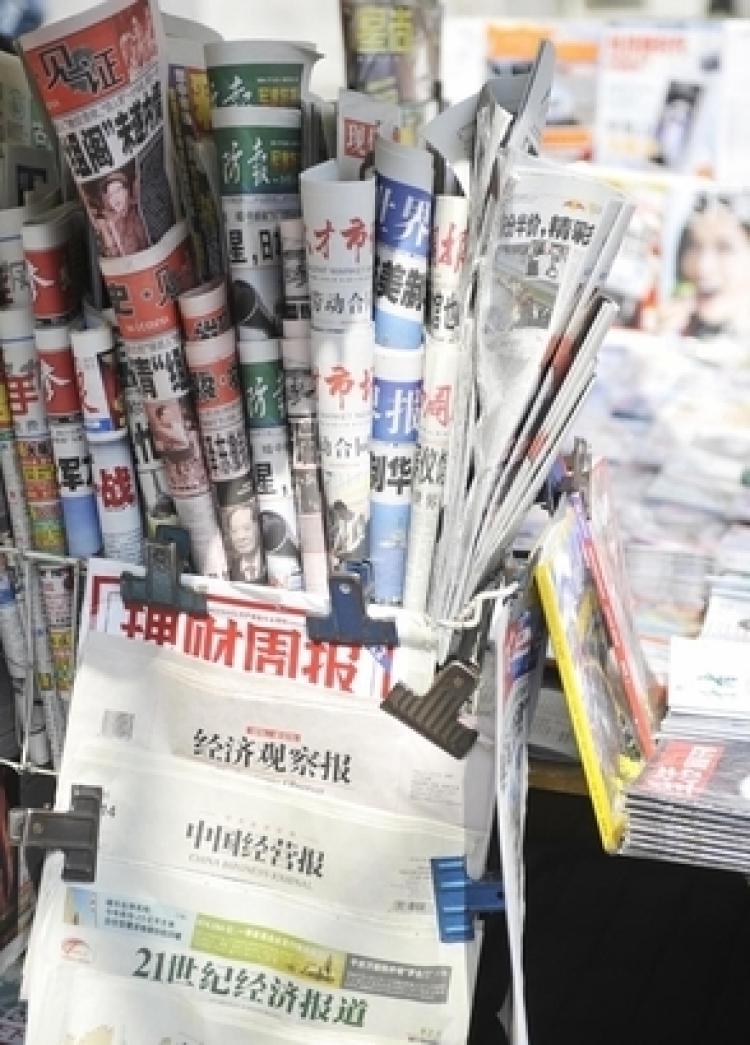More than twenty retired Chinese Communist Party (CCP) officials, including the former secretary of Mao Zedong, recently published an open letter to the Standing Committee of the National People’s Congress (NPC). The letter is a rallying call for the free flow of information and an autonomous press.
The group warns that the current system validates a false sense of democracy and says that freedom of speech in today’s China is worse than that in colonial Hong Kong.
According to Radio France Internationale (RFI), Chinese Edition, 23 senior CCP officials published the open letter Oct. 11. The retired officials include Li Rui, former secretary of Mao; Hu Jiwei, former president and chief editor of People’s Daily; Sha Xinye, vice president of Shanghai Dramatists Association; Li Pu, former associate director of Xinhua; and Jiang Ping, former principal of China University of Political Science and Law.
In their own words, they call to “enforce Article 35 in China’s Constitution and to abolish pre-censorship of press and publication.” The web page onto which they had posted the open letter, however, soon disappeared from the Internet.
Article 35 in China’s Constitution stipulates “freedom of speech, publication, assembly, association, procession, and demonstration.” The authors claim, however, that these freedoms have been unrealized for the past 28 years, and that an oppressive system has negated the essence of Article 35. It has, they say, “become a scandal in the history of democracy.”
The letter accuses the Central Propaganda Department of acting as an “invisible black hand.” Further, the officials write that the Propaganda Department “knows its existence is unconstitutional and often instigates phone calls to demand that so-and-so’s work cannot be published or some news cannot be released.” The officials who make phone calls never leave their names and threaten retribution for non-compliance.
In the letter, the senior officials suggest that the NPC abolish all local governments restrictions on the press, and demand the Congress carry out Article 35 to give citizens freedom to speak out.
While listing ideas for reform, the Oct. 11 open letter asserts that the country should eliminate Internet police, professional Internet commentators (the 50-Cent Party), and restrictions on technologies that fight behind-the-scenes censorship. This year the number of Internet users in China was tallied at around 400 million.
Under the current policy, all government departments are subject to scrutiny by the Central Propaganda Department, which is controlled by central Party figures and seeks to guide, manipulate, and control the ideological currents of Chinese society. All past ministers of the department have been members of the Politburo, the country’s highest official power.
In past years, objecting to censorship has carried its own set of dangers. For example, in March 2004, Jiao Guobiao, former professor at Peking University, published an article, “Declaration of the Campaign against The Central Propaganda Department,” condemning the department’s deliberate obfuscation of information. He was later removed from the university.
The group warns that the current system validates a false sense of democracy and says that freedom of speech in today’s China is worse than that in colonial Hong Kong.
According to Radio France Internationale (RFI), Chinese Edition, 23 senior CCP officials published the open letter Oct. 11. The retired officials include Li Rui, former secretary of Mao; Hu Jiwei, former president and chief editor of People’s Daily; Sha Xinye, vice president of Shanghai Dramatists Association; Li Pu, former associate director of Xinhua; and Jiang Ping, former principal of China University of Political Science and Law.
In their own words, they call to “enforce Article 35 in China’s Constitution and to abolish pre-censorship of press and publication.” The web page onto which they had posted the open letter, however, soon disappeared from the Internet.
Article 35 in China’s Constitution stipulates “freedom of speech, publication, assembly, association, procession, and demonstration.” The authors claim, however, that these freedoms have been unrealized for the past 28 years, and that an oppressive system has negated the essence of Article 35. It has, they say, “become a scandal in the history of democracy.”
The letter accuses the Central Propaganda Department of acting as an “invisible black hand.” Further, the officials write that the Propaganda Department “knows its existence is unconstitutional and often instigates phone calls to demand that so-and-so’s work cannot be published or some news cannot be released.” The officials who make phone calls never leave their names and threaten retribution for non-compliance.
In the letter, the senior officials suggest that the NPC abolish all local governments restrictions on the press, and demand the Congress carry out Article 35 to give citizens freedom to speak out.
While listing ideas for reform, the Oct. 11 open letter asserts that the country should eliminate Internet police, professional Internet commentators (the 50-Cent Party), and restrictions on technologies that fight behind-the-scenes censorship. This year the number of Internet users in China was tallied at around 400 million.
Under the current policy, all government departments are subject to scrutiny by the Central Propaganda Department, which is controlled by central Party figures and seeks to guide, manipulate, and control the ideological currents of Chinese society. All past ministers of the department have been members of the Politburo, the country’s highest official power.
In past years, objecting to censorship has carried its own set of dangers. For example, in March 2004, Jiao Guobiao, former professor at Peking University, published an article, “Declaration of the Campaign against The Central Propaganda Department,” condemning the department’s deliberate obfuscation of information. He was later removed from the university.


